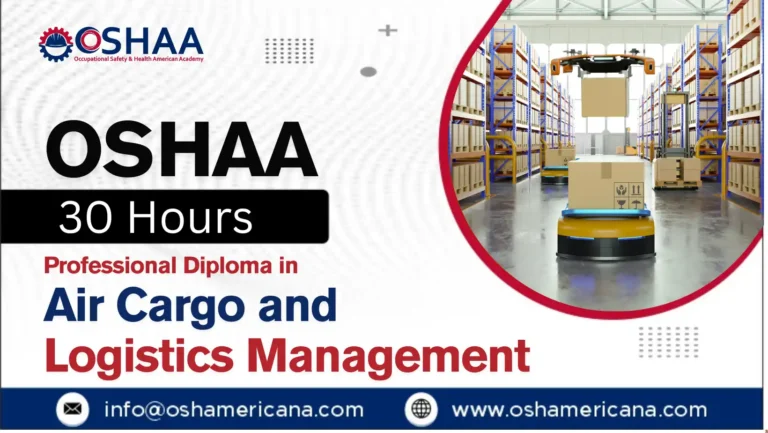Gain essential skills with the OSHAA 30-Hours Elderly Care and Caring for the Disabled course. Enhance caregiving expertise, safety, and career growth.
The OSHAA 30-Hours Elderly Care and Caring for the Disabled course is a comprehensive training programme designed to equip caregivers with the knowledge, confidence, and practical expertise required to deliver exceptional care. Providing high-quality support to elderly individuals and those living with disabilities is a role of immense responsibility, and this course ensures that caregivers are fully prepared to meet these demands with professionalism, compassion, and competence.
Over a structured 30-hour training period, participants will explore the fundamental principles and advanced practices of elderly and disability care. The OSHAA 30-Hours Elderly Care and Caring for the Disabled course places strong emphasis on understanding the unique physical, cognitive, and emotional needs of individuals, ensuring that every learner develops the ability to manage complex care situations with confidence. This includes in-depth training on health conditions associated with ageing, strategies for safe mobility support, personal care assistance, emotional and psychological well-being, and effective communication skills tailored to the specific requirements of elderly and disabled individuals.
The programme highlights the importance of delivering care that prioritises safety, dignity, and quality of life. With the OSHAA 30-Hours Elderly Care and Caring for the Disabled course, caregivers are not only trained to provide physical assistance but also to foster an environment of respect, empathy, and empowerment for those they support. The curriculum is designed in alignment with professional standards, ensuring compliance with best practices in caregiving while simultaneously contributing to the personal and professional growth of each participant.
This course is ideal for professional caregivers seeking to advance their skills, family members caring for loved ones, and individuals aiming to enter the caregiving profession. Completing the OSHAA 30-Hours Elderly Care and Caring for the Disabled course opens opportunities for career progression while enhancing the overall quality of care delivered. It also offers participants the ability to gain valuable insights into creating safe, supportive, and enriching environments for elderly and disabled individuals, making the course a cornerstone of professional caregiving training.
By undertaking the OSHAA 30-Hours Elderly Care and Caring for the Disabled course, learners will not only develop essential caregiving skills but also contribute meaningfully to the well-being of some of the most vulnerable members of society. The programme stands as a vital step toward achieving excellence in care provision, strengthening professional development, and ensuring that caregivers are fully prepared to meet global standards in elderly and disability care.
OSHAA 30-Hours Elderly Care and Caring for the Disabled
To enroll in the OSHAA 30-Hours Elderly Care and Caring for the Disabled course, learners are expected to meet the following criteria:
Age Requirement
- Applicants must be at least 18 years of age to register for the OSHAA 30-Hours Elderly Care and Caring for the Disabled course. This ensures that participants have the maturity and responsibility required to handle the sensitive and professional nature of caregiving roles.
Educational Background
- A minimum of a high school diploma or equivalent qualification is recommended for enrolling in the OSHAA 30-Hours Elderly Care and Caring for the Disabled course. While this foundational level of education is sufficient, learners who hold higher education or vocational qualifications in healthcare, nursing, or social care will find the course content particularly advantageous in enhancing their professional practice.
Work Experience
- Prior caregiving experience is not mandatory for enrollment in the OSHAA 30-Hours Elderly Care and Caring for the Disabled course, making it accessible to both beginners and experienced professionals. However, individuals with previous exposure to caregiving, healthcare assistance, or related roles may benefit from a deeper understanding of the advanced techniques and practical strategies covered in the training.
English Proficiency
- Participants enrolling in the OSHAA 30-Hours Elderly Care and Caring for the Disabled course must possess a functional level of English proficiency. Learners are expected to read, write, and communicate effectively in English to fully understand the course materials, follow care protocols, and meet regulatory requirements. Strong English skills are essential to ensure clarity in delivering safe and effective elderly and disability care.
The eligibility requirements are designed to make the OSHAA 30-Hours Elderly Care and Caring for the Disabled course accessible, while maintaining the professional standards necessary for high-quality training. By setting clear entry criteria, the programme ensures that all learners are well-prepared to engage with the training and develop the competencies required to provide exceptional elderly and disability care.
Study Units
Learning Outcomes
The Learning Outcomes of the OSHAA 30-Hours Elderly Care and Caring for the Disabled course are designed to provide participants with advanced caregiving skills, compliance knowledge, and safety-focused expertise. Each unit of the programme equips learners with practical competencies and theoretical understanding aligned with international caregiving and OSHA standards. By the end of this training, learners will not only be able to provide effective elderly and disability care but also uphold best practices in health, safety, and professional conduct.
- Introduction to Elderly and Disability Care (3 hours)
- Develop a strong understanding of the principles and responsibilities of elderly and disability care.
- Recognize the ethical, legal, and professional standards that guide safe caregiving practices.
- Gain insights into the global importance of elderly and disability care within modern healthcare and community settings.
- Health Conditions and Disabilities (4 hours)
- Identify common health conditions associated with ageing and disability, including chronic and acute illnesses.
- Understand the impact of physical and cognitive impairments on daily living and overall well-being.
- Learn strategies for managing health-related challenges while promoting independence and dignity.
- Apply best practices in recognizing early warning signs and responding to emergencies effectively.
- Personal Care and Hygiene Assistance (4 hours)
- Acquire practical skills in assisting with personal hygiene tasks, including bathing, grooming, and dressing.
- Ensure safe and respectful practices that maintain the dignity and comfort of elderly and disabled individuals.
- Apply infection control measures and hygiene protocols to reduce health risks in caregiving environments.
- Adapt personal care support to the specific needs of individuals with mobility or cognitive limitations.
- Promoting Mobility and Physical Health (4 hours)
- Gain techniques for supporting safe mobility, transfers, and the use of assistive devices.
- Understand the role of physical activity in maintaining health, strength, and independence.
- Learn to assess mobility risks and implement safety measures to prevent falls and injuries.
- Promote rehabilitation and exercise routines tailored to the capabilities of elderly and disabled individuals.
- Nutrition and Feeding Assistance (4 hours)
- Understand the nutritional requirements of elderly and disabled individuals and their role in overall health.
- Provide safe and effective feeding assistance while accommodating dietary restrictions and medical conditions.
- Identify signs of malnutrition, dehydration, and swallowing difficulties and apply appropriate interventions.
- Promote healthy eating habits that support both physical and emotional well-being.
- Medication and Healthcare Management (4 hours)
- Develop knowledge of medication types, purposes, and safe handling procedures.
- Learn proper administration practices while adhering to healthcare protocols and safety regulations.
- Understand the importance of accurate documentation and communication in healthcare management.
- Support coordination with healthcare professionals to ensure comprehensive and effective care.
- Emotional Support and Communication (4 hours)
- Build effective communication skills tailored to elderly individuals and those with disabilities.
- Provide emotional support to address feelings of isolation, anxiety, or depression.
- Foster positive relationships that enhance trust, respect, and overall quality of life.
- Apply techniques for conflict resolution and stress management within caregiving contexts.
- Cultural Sensitivity and Personal Boundaries (3 hours)
- Recognize the importance of cultural awareness and its impact on caregiving practices.
- Respect personal boundaries while providing intimate or sensitive care.
- Adapt care approaches to align with cultural, religious, and individual preferences.
- Promote inclusivity and sensitivity to diversity in caregiving environments.
By completing the OSHAA 30-Hours Elderly Care and Caring for the Disabled course, learners will emerge with a comprehensive skill set that strengthens their ability to provide safe, dignified, and effective care. This training prepares participants to lead with professionalism, ensure compliance with OSHA and international standards, and foster a culture of safety, empathy, and excellence in elderly and disability care across global caregiving environments.
The OSHAA 30-Hours Elderly Care and Caring for the Disabled course offers participants a wide range of professional and personal benefits that extend beyond technical caregiving skills. Designed to meet the growing global demand for high-quality elderly and disability care, this programme provides learners with essential knowledge, practical expertise, and regulatory awareness. Industry professionals, organizations, and stakeholders benefit from a workforce that is better prepared to meet international caregiving standards while ensuring compliance with safety regulations and best practices. By completing this course, learners strengthen their professional development, open doors to career advancement, and contribute to building a safer and more compassionate care environment.
- Enhanced Knowledge in Elderly and Disability Care
- Gain a strong foundation in understanding the unique needs of elderly individuals and those with disabilities. Learners acquire both theoretical knowledge and practical skills that can be applied in professional caregiving roles and community-based care.
- Regulatory Compliance and Safety Standards
- The OSHAA 30-Hours Elderly Care and Caring for the Disabled course ensures alignment with OSHA and international caregiving regulations. Participants learn compliance-based practices that protect caregivers, organizations, and care recipients from risks and liabilities.
- Improved Workplace Safety
- Learners develop competencies in mobility assistance, fall prevention, and safe handling techniques. These skills reduce the risk of workplace incidents and create a safer caregiving environment for both staff and patients.
- Professional Development and Career Advancement
- Completing this course adds recognized credentials to a learner’s professional profile. This enhances employability, creates opportunities for promotions, and demonstrates a strong commitment to continuous professional growth.
- Practical Caregiving Skills
- Participants acquire hands-on expertise in personal hygiene assistance, nutrition management, medication administration, and emotional support. These skills are immediately transferable to professional caregiving, healthcare, or home-care environments.
- Effective Communication and Interpersonal Skills
- The course builds strong communication strategies tailored to elderly and disabled individuals. Learners gain the ability to handle sensitive conversations, provide emotional support, and foster trust between caregivers and care recipients.
- Cultural Sensitivity and Inclusivity
- By emphasizing cultural awareness and respect for diversity, the OSHAA 30-Hours Elderly Care and Caring for the Disabled course prepares participants to work effectively in multicultural caregiving environments, promoting inclusivity and dignity.
- Emergency Preparedness and Risk Management
- Learners are trained to respond effectively to emergencies such as health crises, accidents, or sudden behavioral changes. This improves readiness, reduces risks, and ensures care recipients receive immediate, appropriate support.
- Cost Savings and Operational Efficiency
- Organizations benefit from reduced errors, lower accident rates, and improved staff efficiency. Learners trained in the OSHAA 30-Hours Elderly Care and Caring for the Disabled course contribute to smoother operations and better resource management.
- Stronger Emotional Intelligence in Caregiving
- Participants develop empathy, patience, and resilience—qualities essential for managing the emotional challenges of caregiving. This leads to higher quality care and better caregiver well-being.
- Leadership and Supervisory Skills
- The course equips learners with the ability to take initiative, mentor colleagues, and support team leadership roles within caregiving environments. These competencies prepare participants for supervisory and management opportunities.
- Global Recognition of Skills
- Completion of the OSHAA 30-Hours Elderly Care and Caring for the Disabled course provides participants with internationally applicable skills, enabling them to pursue caregiving opportunities in diverse healthcare systems worldwide.
- Personal Growth and Confidence
- Learners gain the confidence to handle complex care scenarios with professionalism. This personal development benefit enhances both career prospects and satisfaction in providing meaningful care.
- Strengthened Worker Well-Being and Retention
- Trained caregivers experience less workplace stress due to improved skills and preparedness. This contributes to better job satisfaction, stronger staff retention, and healthier caregiving environments.
- Commitment to Continuous Improvement
- The course fosters a mindset of lifelong learning and adaptability, ensuring that participants remain up to date with evolving caregiving practices, health guidelines, and safety standards.
By completing the OSHAA 30-Hours Elderly Care and Caring for the Disabled course, participants gain more than technical expertise; they acquire a holistic set of professional, regulatory, and interpersonal skills. These benefits empower learners to enhance safety, ensure compliance, support organizational goals, and foster a culture of care excellence across global caregiving environments.
The OSHAA 30-Hours Elderly Care and Caring for the Disabled course is specifically designed for professionals, caregivers, and stakeholders involved in providing comprehensive care to elderly individuals and people with disabilities. This programme is highly relevant to healthcare professionals, care organizations, and social service providers seeking to enhance workplace safety, ensure regulatory compliance, and develop advanced caregiving skills. By following OSHA-aligned practices, the OSHAA 30-Hours Elderly Care and Caring for the Disabled course equips learners with the expertise needed to deliver safe, dignified, and high-quality care across global care environments.
- Professional Caregivers
- Deliver hands-on care and support to elderly and disabled individuals in hospitals, clinics, and home care settings.
- Enhance practical skills in personal care, mobility assistance, and emotional support through the OSHAA 30-Hours Elderly Care and Caring for the Disabled training.
- Learn to apply safety protocols and compliance measures to minimize risk and protect both caregiver and care recipient.
- Advance professional credibility and career opportunities by obtaining a recognized OSHAA certification.
- Family Caregivers
- Provide daily care for relatives or loved ones living with age-related conditions or disabilities.
- Gain essential knowledge in safe caregiving techniques, hygiene, and nutrition via the OSHAA 30-Hours Elderly Care and Caring for the Disabled course.
- Understand OSHA-aligned standards and best practices to ensure well-being and risk mitigation.
- Acquire strategies to manage emotional stress and enhance resilience while delivering effective care.
- Healthcare Professionals
- Nurses, therapists, and allied health staff benefit from advanced elderly and disability care knowledge.
- Apply insights from the OSHAA 30-Hours Elderly Care and Caring for the Disabled programme to improve patient safety, care quality, and compliance with global caregiving standards.
- Strengthen multidisciplinary collaboration and clinical decision-making skills.
- Enhance operational efficiency and adherence to workplace safety standards.
- Social Workers and Community Support Staff
- Engage in planning and providing community-based care services for elderly and disabled populations.
- Utilize the OSHAA 30-Hours Elderly Care and Caring for the Disabled curriculum to implement holistic, person-centered care approaches.
- Ensure compliance with safety, hygiene, and health regulations aligned with OSHA standards.
- Improve service efficiency and client satisfaction through structured caregiving practices.
- Care Facility Managers
- Oversee staff, operational procedures, and care quality in nursing homes, assisted living, and disability facilities.
- Use insights from the OSHAA 30-Hours Elderly Care and Caring for the Disabled course to enforce safety protocols and regulatory compliance.
- Enhance staff training and competency development programs.
- Strengthen leadership and operational management in caregiving environments.
- HSE Officers and Safety Coordinators
- Ensure health, safety, and compliance standards are maintained within care facilities.
- Implement OSHAA-aligned protocols from the OSHAA 30-Hours Elderly Care and Caring for the Disabled course to reduce risks and enhance safe care delivery.
- Monitor hazards, establish preventative measures, and improve incident response.
- Foster a workplace safety culture aligned with international care standards.
- Training and Development Professionals
- Conduct employee development and skills training within caregiving organizations.
- Leverage the OSHAA 30-Hours Elderly Care and Caring for the Disabled curriculum to design effective training programs.
- Ensure staff competence in delivering elderly and disability care while maintaining safety compliance.
- Contribute to career development pathways and organizational excellence in caregiving standards.
- Occupational Therapists and Physiotherapists
- Provide mobility support, rehabilitation, and functional care for elderly and disabled clients.
- Apply techniques and safety practices learned in the OSHAA 30-Hours Elderly Care and Caring for the Disabled course to enhance patient outcomes.
- Collaborate effectively with interdisciplinary care teams to ensure comprehensive care delivery.
- Align rehabilitation practices with OSHA-compliant safety standards.
- Policy Makers and Regulators in Health and Social Care
- Develop, enforce, and monitor policies governing elderly and disability care.
- Gain practical insights from the OSHAA 30-Hours Elderly Care and Caring for the Disabled course to inform regulatory frameworks and safety standards.
- Promote effective, safe, and compliant caregiving practices across organizations.
- Strengthen community health and social care programs through evidence-based guidance.
- Volunteers and Non-Profit Organization Staff
- Deliver care and support services to vulnerable elderly and disabled populations.
- Acquire practical caregiving skills through the OSHAA 30-Hours Elderly Care and Caring for the Disabled course to ensure safe and effective care delivery.
- Apply OSHA-aligned safety, hygiene, and compliance measures in volunteer activities.
- Build professional credibility and contribute meaningfully to community care initiatives.
The OSHAA 30-Hours Elderly Care and Caring for the Disabled course equips participants in all roles with advanced caregiving knowledge, professional skills, and globally recognized certification. This comprehensive training enhances safety, ensures regulatory compliance, strengthens operational efficiency, and fosters excellence in providing high-quality care for elderly and disabled individuals worldwide.







